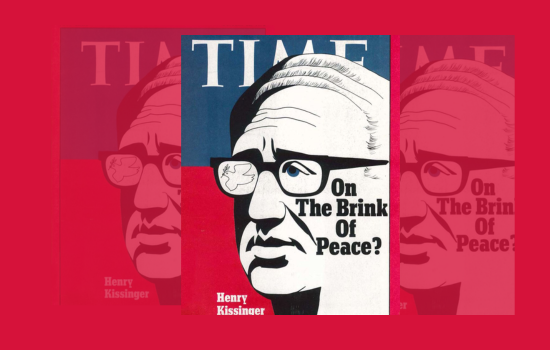Nial Ferguson
WSJ, Nov. 29, 2023
“Kissinger’s real contribution was as a strategist and negotiator. Asked in 1976 to assess his own statesmanship, he replied: “I have tried—with what success historians will have to judge—to have an overriding concept.” He combined grand strategy with indefatigable “shuttle diplomacy” and an ability to read his foreign counterparts.”
No U.S. secretary of state ever achieved such celebrity while in office as Henry Kissinger. A 1974 Newsweek cover depicted him as “Super K,” a comic-book hero. Time called him “the world’s indispensable man.” Gallup ranked him America’s most admired man. A 1972 Life magazine spread pictured him with a bevy of actresses, including Jill St. John.
Yet no former secretary of state has been more vehemently criticized. Of the many anti-Kissinger books, the most influential was Christopher Hitchens’s “The Trial of Henry Kissinger” (2001), which explicitly accused Kissinger of responsibility for “war crimes and crimes against humanity in Indochina, Chile, Argentina, Cyprus, East Timor, and several other places”—although the book mentioned only one other supposed crime scene, Bangladesh, and mentioned the Soviet Union a mere three times. These accusations stuck like mud—late in life, Kissinger regularly faced protests at his public appearances—yet they are at odds with the historical record.
Kissinger served Presidents Nixon and Ford as White House national security adviser and secretary of state—holding both positions between September 1973 and November 1975. He was the first naturalized Citizen in either office. His accomplishments include the negotiation of the first Strategic Arms Limitation Treaty and the Anti-Ballistic Missile Treaty with the Soviet Union, the opening to China, the cease-fire in the Yom Kippur War, and the end of U.S. involvement in the Vietnam War, for which he and North Vietnamese counterpart Le Duc Tho were awarded the 1973 Nobel Peace Prize.
… [To read the full article, click here]
_____________________________


